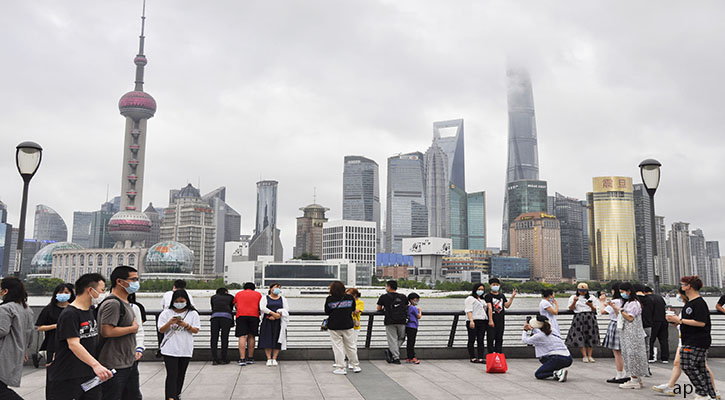
In May, MPF funds lost 2.7% on average. Equity funds fell 4.2% on average, followed by an average 2.3% loss for allocation funds. Less risky categories, such as fixed income and money market funds, were also in the red. So far this year, the scheme’s funds generated a 1.0% return for contributors.
Mixed Performance for Asian Equities in May
Hong Kong and China & Greater China equity funds are the May and year-to-date laggards. They lost 8.3% and 6.4% for the month respectively. Proxied by Hang Seng Index, the China market has given up 15.5% of the returns from peak touched in Jan. 27. The market is one again teetering on the brink of a bear market.
In contrast, Japan staged another month of robust return in stocks. Japan equity MPFs edged up by 2.2%. Along with U.S. equities, they are the two equity groups that remain in the green for the month. Driven by corporate governance reforms and a post-COVID reopening, the Morningstar Japan Index rose 7.7% in the first five months of the year. This has buoyed Japanese equity funds in the MPF scheme and made the category the best performer for this year, so far. Market watchers think structural improvement in operating profitability remains underappreciated and pockets of opportunities in Japanese stocks can be found.
The mixed performance in Asian stock markets resulted in losses in Asia ex-Japan equity MPFs (minus 2.8%) and Asia-Pacific ex-Japan equity MPFs (minus 1.8%).
U.S. Gains Despite Growing Recession Worries; Europe Sees Price Pressure Easing
In the U.S., officials at Federal Reserve in the May meeting signaled that the need for further interest rate increases had become less certain as job hiring in the U.S. continues to be strong. The rate-setting meeting took place against the backdrop of a political standoff over raising the country’s debt limit. It is also against the backdrop of an uncertain economic outlook where investors are weighing the potential for a recession against implications of still-high inflation.
On average, the U.S. equity MPF category was little changed, up 0.6% in May. So far this year, the Morningstar US Market Index is up about 12.1%.
After a generally positive year so far, European equity MPFs were weaker in May, falling 4.6% on average. The category defended a year-to-date return of 9.3% despite a decline. Inflation have been front and center in the eurozone. After hitting an inflation rate of 7% in April, signs of easing price pressures in the eurozone appear and this might boost hopes that rate rises may soon end.
The New Entrant in the MPF Field: ESG Funds
Two MPF providers announced the roll out of environmental, social and governance, or ESG-aware funds in the scheme. Manulife will change the investment objectives and the underlying investments of two funds under its MPF product scheme to incorporate ESG factors as key investment focus. The change will be effective from Oct. 3 2023.
Manulife MPF Hang Seng Index Tracking Fund will be renamed to Manulife MPF Hang Seng Index ESG Fund. The underlying vehicle is the ChinaAMC HSI ESG ETF, which mimics the HSI ESG Enhanced Index. The index tracker adopts an ESG exclusion policy.
Another strategy change is made to a fixed-income fund, Manulife MPF Pacific Asia Bond Fund. The fund will be renamed to Manulife MPF Sustainable Pacific Asia Bond Fund and invest predominantly in USD-denominated fixed income securities in the Asia Pacific region.
Sun Life Hong Kong also added three new MPF funds that consider ESG factors to its product fleet. They are: a passive fund tracking a low-carbon index, a U.S. equity fund, and a Europe equity fund. The respective fee level will be 1.1%, 1.28%, and 1.305%.
The index tracker, Sun Life MPF Global Low Carbon Index Fund, replicates the performance of the FTSE Custom MPF Developed Selected Countries ESG Low Carbon Select Hedged Index.












.png)



.jpg)





